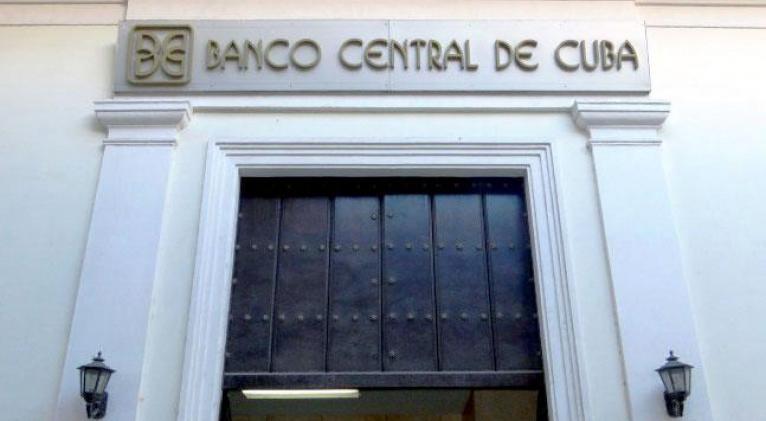BCC: Questions and Answers About Banking Actions
especiales

Resolution 111/2023 of the Central Bank of Cuba (BCC), published in the Extraordinary Official Gazette number 55, establishes the actions to favor the banking processes in the country, which began to be implemented on August 3, gradually and in equal conditions towards all economic actors.
In order to contribute to a better understanding of these measures, the bank published on its website some questions and answers about the process, which we have below:
1. What is the banking of operations?
It seeks to offer all of society access and use of banking and financial services: payments, savings and credit. Having a bank account is the first step, but it’s not enough.
It’s about making all payments for services, products, and other commercial and financial operations, preferably through the use of payment instruments and electronic channels, instead of cash.
2. What is cash?
They are the bills and coins that are put into circulation by the BCC.
3. What is meant by payment instruments other than cash?
They are the payment instruments and credit instruments authorized by the BCC to carry out transactions and that are not cash (bills and metallic coins): checks, bills of exchange, promissory notes, payment cards, transfers, collection order, letter of local credit.
The first three are governed by Decree-Law 341/2017 and the rest, by BCC Resolution 183/2020.
4. What are electronic payment channels?
They are technological facilities offered by banks for the access and use of their clients, to make inquiries and financial transactions.
Those currently used in Cuba are:
- Point of sale terminals or POS.
- ATMs
- Transfermóvil payment gateway, provided by the Cuban Telecommunications Company S.A. (Etecsa), which includes the mobile wallet.
- Enzona payment gateway, provided by Xetid and Servicios de Pago Red S.A. (Redsa).
- Telephone Banking, offered by banks.
- Remote Banking: Virtual BANDEC, Metro online, Remote Banking of Banco Popular de Ahorro.
5. What do I have to do to acquire a card and which bank should I contact?
You can go to the bank closest to your home and only with your identity card can you can make the request.
If you are already a Transfermóvil user, you have the possibility of requesting the card in convertible currency (MLC) in this way, as well as reprinting the card in CUP currency if it’s damaged or lost.
6. What is a coordinate or matrix card?
It’s a security tool, in addition to the bank security code of the payment card. Contains an array or series of letters and numbers, arranged in rows and columns, the combination of which generates a two-digit number.
This card can also be obtained at the bank branch where you request the magnetic card. With which you can authenticate in the different electronic payment channels.
7. What is a QR code?
It’s a quick response code, which stores encrypted information, and when scanned from phones or other mobile devices, it allows financial transactions to be carried out safely, automatically and quickly.
QR code facilitates not having to type account numbers or mobile phones to confirm the operation, which ensures security and speed.
8. Is cash payment eliminated in the purchase and sale of goods and services?
It’s not removed. It’s a gradual process where the objective is to minimize its use. Cash does not disappear.
The actions are aimed at encouraging the use of electronic payment instruments and channels. It’s based on the principle that the actions will be carried out gradually and in correspondence with the economic and technological conditions that are created in each locality.
9. What will happen to those people who don’t have mobile phones with the capacity required by the applications?
The banking process is gradual, in correspondence with the economic and technological conditions that are created in each locality. Cash will continue to be used, the actions are directed to minimize its use where conditions are created. You can also use a payment card to carry out operations where there’s a POS service.
10. What will happen in towns where there are no ATMs?
In these localities, intense work is being done to create the conditions where, beyond the fact that an ATM may exist, businesses must guarantee the option of electronic payment channels and implement the Extra Cash service and other facilities for natural persons.
11. What benefits does using electronic payment channels offer?
They offer sec urity, speed, comfort, immediacy, and in most cases, economic savings due to the bonuses offered by banks and payment gateways.
12. Who are the actors in the economy to whom the regulation or Resolution 111/2023 of the BCC is addressed?
The economic actors subject to the regulation are:
- State companies.
- Higher organizations of Business Management (HOBM).
- budgeted units; non-agricultural cooperatives.
- agricultural cooperatives.
- micro, small, and medium-sized enterprises (MSMEs).
- The modalities of foreign investment.
- The associative forms created under the Associations Law.
- local development projects (LDP).
- agricultural producers.
- individual farmers.
- commercial fishermen.
- self-employed workers (SEW).
- artists and creators.
13. Who is the limit of five thousand pesos in article 4 of Resolution 111/2023 addressed to?
The limit of five thousand pesos is established per cash operation, for collections and payments between economic actors, which are subject to this Resolution. It’s not for natural persons.
14. Who are those who can make cash withdrawals from ATMs?
Only natural persons who have magnetic cards associated with salaries, pensions, personal assets and savings accounts.
15. What are bank accounts for tax purposes?
They are those current accounts of the SEW that have been declared before the National Tax Administration Office (ONAT) as bank accounts associated with their business.
16. Do the thresholds of 80 thousand CUP per operation and 120 thousand CUP per month affect economic actors?
No. Only for operations between accounts of natural persons and cash withdrawals from them.
17. Can money be transferred from a regular account to an account of a natural person?
Yes, you can, although banks will offer their clients the safest and most efficient ways for each of the operations they carry out, for example, they will provide the payroll direct debit service for the payment of wages to workers.
18. How can economic actors hire payment gateways?
You can contact Etecsa and Xetid through their web pages, in the customer service section.
To request the POS, it must be requested in person at the headquarters of Financiera Cimex, S.A. (Fincimex), located in Miramar, Playa, Havana, or in the representative offices located in the rest of the country's provinces.
Translated by Amilkal Labañino / CubaSí Translation Staff














Add new comment